Mehsana: Jai Durga Ma bhajans ring through the village temple as young couples, weary farmers, and elderly devotees fold their hands before Meldi Mata. They aren’t here to pray for a good harvest or health—only the chance to chase the American dream, now shadowed by the Donald Trump administration.
For residents of the Patidar-dominated Jasalpur village in Gujarat’s Mehsana district, the temple is a sacred stop on the journey to the United States. Devotees believe the goddess Meldi—pronounced as an anglicised ‘Melody’ here— answers the prayers of those seeking to migrate to the US for a better life. They usually offer sukhdi prasad to the goddess once a family member crosses the border, but under Trump’s crackdown on illegal immigration, faith has turned to fear.
Devotees are thronging the temple and imploring the goddess to shield their sons and daughters from US Immigration and Customs Enforcement, or ICE. They fear Trump will send immigrants back by the planeload any moment now.
“My son went to the States last year after crossing the border from Mexico,” said a farmer in his 50s, requesting anonymity. “I am afraid he will now be put in a plane and sent back to India, so I came to the temple to pray to the goddess to keep him safe there.”
The farmer added he borrowed close to Rs 60 lakh from other villagers in order to fund his son’s American dream.
“What will I do with all the loans that I have taken up if he’s sent back?” he asked, sipping tea at a stall near the temple.
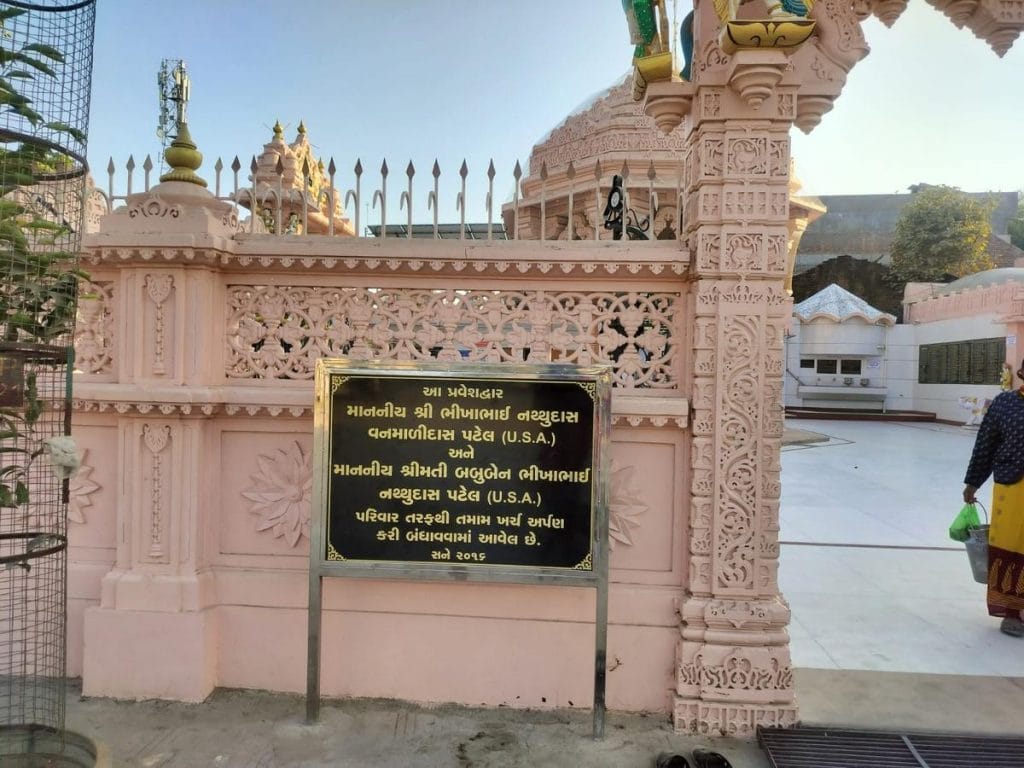
With visions of deportation flights, Gujarat’s dunki families are now reaching out to the gods for help. While the dunki route to immigration is mostly associated with Punjabis and Haryanvis, Gujaratis form a large part of it too. Agents that ThePrint spoke to say even before Trump took office, illegally entering the country had become close to impossible. Many of their clients are stuck in Mexico, Dubai, and other transit places.
“Clients are returning from Dubai and Mexico. All lines (illegal routes) have slowed down or completely stopped for the last four months,” one agent from north Gujarat told ThePrint over the phone.
It’s only been a few days since Trump announced these executive orders, and raids have already begun. There is fear among us. Anything can happen
-A Kentucky gas station worker from Mehsana
Even those on legitimate work visas are tense. Lawyers are organising Zoom meetings creating videos to reassure the Gujarati diaspora. In the US, some Indian parents-to-be are rushing for emergency C-sections to secure birthright citizenship for their children before Trump’s executive order banning it takes effect on 19 February.
Indians are the third-largest undocumented immigrant group in the United States, according to a Pew Research report. ICE is turning up the heat, with more than 2,000 illegal immigrants arrested in just two days this week. And 18,000 Indians reportedly face the threat of deportation, with many more to likely to follow.
The Ministry of External Affairs, however, has said any talk of how many people face deportation is “premature” and that it would facilitate the return of undocumented Indians.
“If they are Indian nationals, and they are overstaying or in a particular country without proper documentation, we will take them back, provided documents are shared with us so that we can verify their nationality,” said MEA spokesperson Randhir Jaiswal in a press briefing.
Yet, Gujaratis are among the most vocal supporters of Trump in both India and the US. And in Jasalpur, some argue that Trump’s policies may not target Indians as harshly as other immigrant groups.
“Indians are not criminals. We are the backbone of America’s economy, and we will remain there,” said Alpesh Patel, whose nephew is a retail worker in the US. “The jobs we do, the white person is unwilling to. It is impossible to send us back en masse.”
Also Read: Meet India’s ‘dunki influencers’. They teach you how to cross Panama jungle, Mexico border
Panic in the States
Even as devotees offer fervent prayers at the altar of Meldi Mata, a group of NRIs gather in the temple courtyard chatting about their admiration for Trump. These men built their lives in the US after crossing over nearly 30 years ago but return to the village every winter.
The men, all from the Patidar community, now run motels, franchise restaurants, liquor stores, or gas stations in the US. And they all overwhelmingly support the Trump government.
“Trump is like Modi. He is a nationalist, and Democrats have allowed unchecked migration for too long. Something had to be done to stop it,” said one of the men, who oversees multiple gas stations in New Jersey.
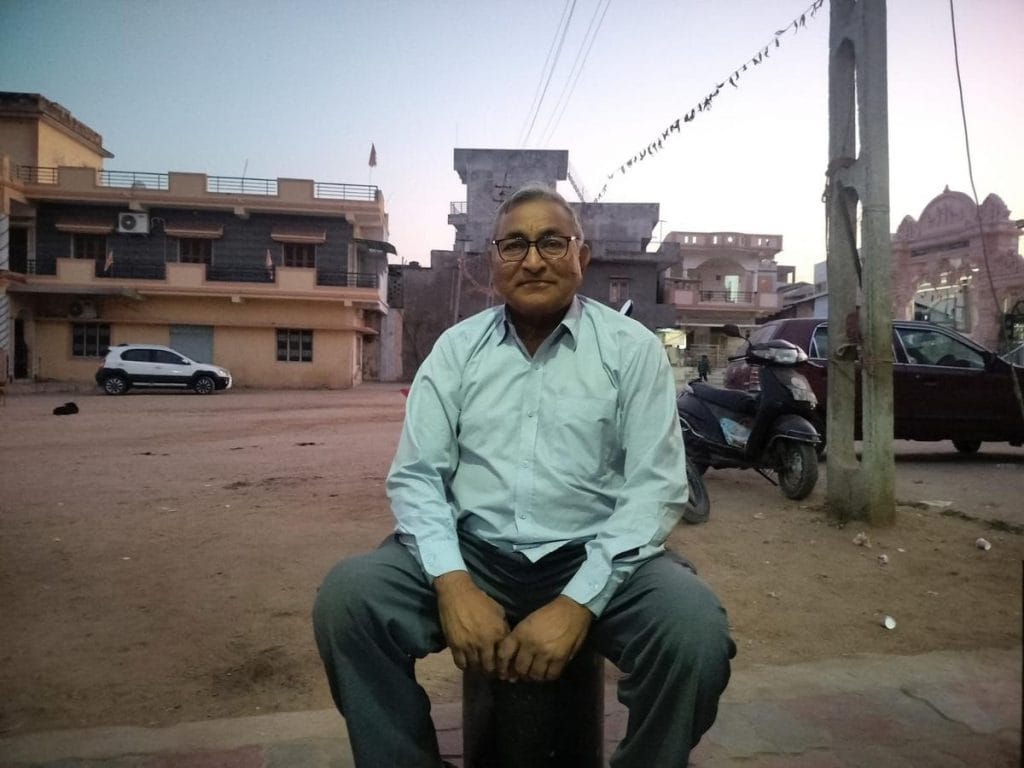
Villagers acknowledge that most of the outward migration from the community has been “2 number” (illegal), but some among them are not frazzled by the new rules.
“Whatever happens will happen. I am not taking any headache over it,” said one temple volunteer, whose son migrated illegally to the US last year and now works at a store. “Our community is very helpful, I know everyone will stand with me at a time of crisis.”
Others are less confident. Alpesh Patel said many of his friends and acquaintances have asked ‘agents’ to return their files and are putting their immigration plans on hold.
A sense of panic is palpable within the immigrant community in the States.
Patels have stopped hiring those who migrate illegally. And if they do, the migrants are kept underground. Otherwise, ICE will shut down their stores
-Illegal immigration ‘agent’
“It’s only been a few days since Trump announced these executive orders, and raids have already begun. There is fear among us. Anything can happen,” a man from Mehsana working in Kentucky told ThePrint over the phone. “Those without papers are in a lot of trouble.”
The 30-year-old gas station worker added that immigrants are now trying to stay invisible. Most only leave home for work and then return straight home.
“My friends are very scared. Everyone keeps their release papers in their pockets. If you have a release paper, then the agents let you go—if you’re found without them then you run the risk of being detained,” he said.
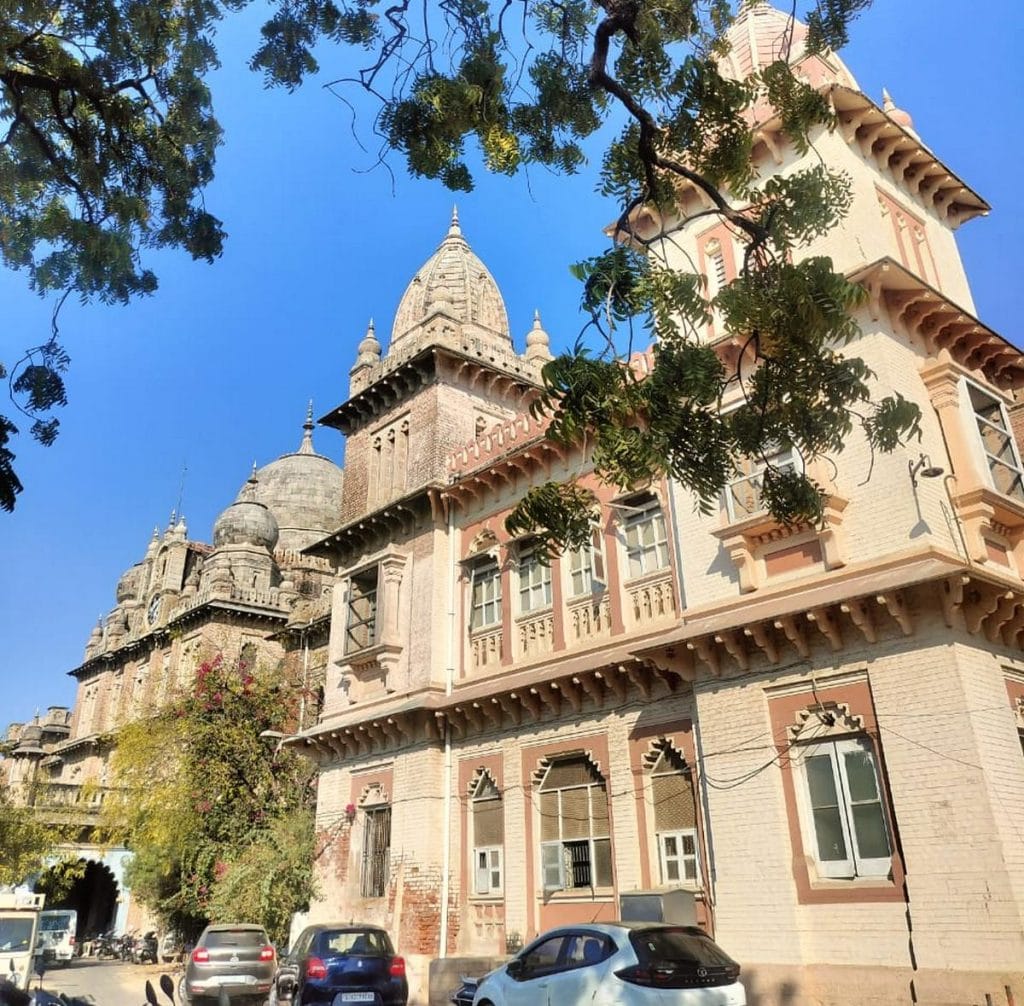
Meanwhile, agents in Gujarat say their business has dwindled. Migration through the Mexico border or Canada has become much more difficult. But it’s not impossible and some are still willing to pay a premium to try their luck.
“Even as there is panic following Trump’s victory, flights, including chartered and connecting flights, are flying frequently. Agents have setting (understanding) with some airlines to fly directly from Delhi to New York,” a second agent told ThePrint over the phone. “People under risk of deportation are leaving Republican states for Democratic ones.”
There are no jobs here. People don’t have any other option. In India, young men are able to earn Rs 15,000 a month, but in the states, they earn up to $3500 (close to Rs 3 lakh). That’s a lot of money to send back home.
-Alpesh Patel, Jasalpur resident
Some agents, however, admit that they are watching behind their shoulders constantly for fear of informants roaming Gujarat’s villages.
Agents also point out that undocumented immigrants can no longer apply for asylum.
“Earlier, people could get asylum on political or social grounds. But now even that is not possible,” said a third agent. Another blow, according to him, is that Patels in the US are also distancing themselves from illegal migrants.
“Patels have stopped hiring those who migrate illegally. And if they do, the migrants are kept underground. Otherwise, ICE will shut down their stores,” he added.
Patidars and the American obsession
Dharmaj is a ‘model village’ in the heart of Anand, with one major claim to fame—almost every family here has at least one member in the United States. Almost all belong to the Patidar community.
About a week after Uttarayan, the annual January kite festival, NRIs on their yearly visit gathered under the village’s clock tower to chat with fellow villagers. All of them speak with a bold American twang, even if their grammar is shaky.
Being “America return” is a badge of pride, and going to the United States is seen as a symbol of success.
It unlocks better marriage prospects and hefty dowries—while families without a US connection face whispers of pity. Local residents, citing news reports, say the 16 nationalised banks in Dharmaj’s vicinity hold deposits of nearly Rs 1,100 crore.
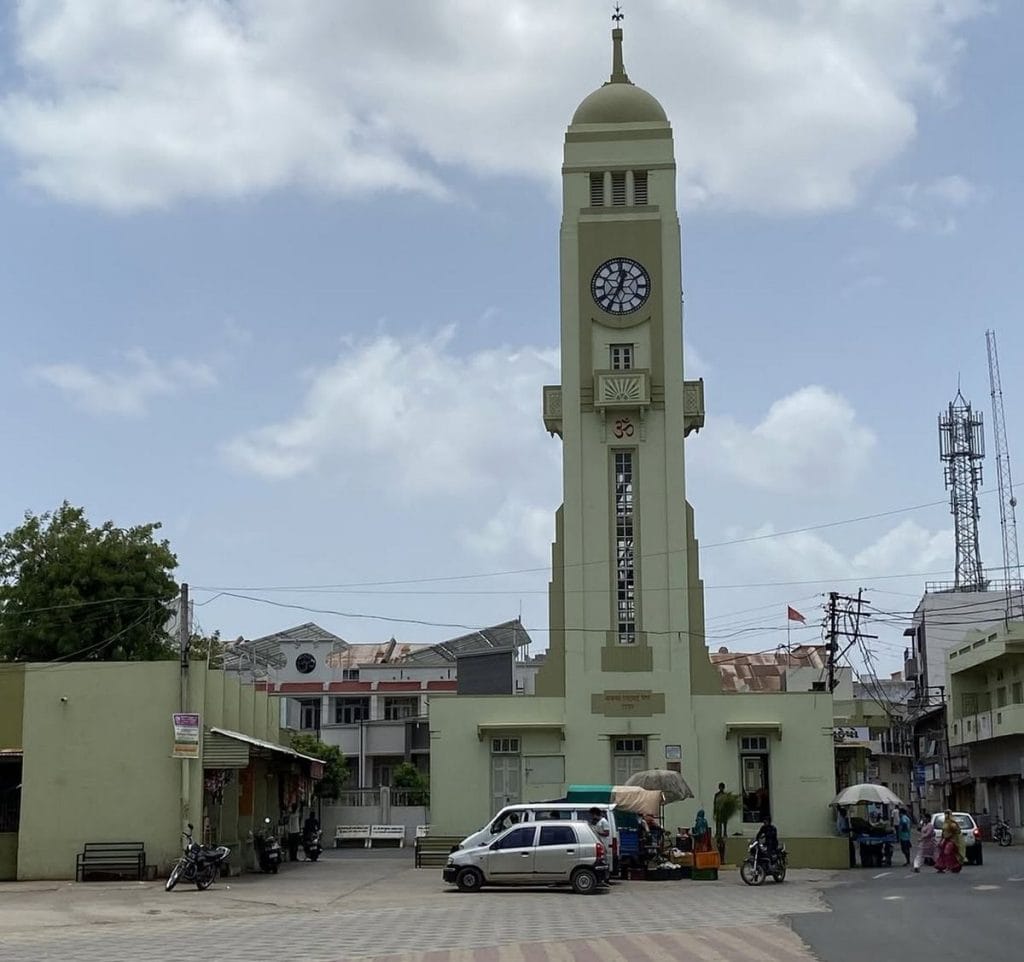
“In our community, there’s a craze for going to the States. It’s hard for a young man to find a partner if he is not in the USA,” said Alpesh.
Returning NRIs, who have built businesses abroad, inspire the village’s youth. Punjab’s obsession with Canada may be louder, but Gujarat’s obsession with working in the US runs just as deep.
The Patidar community, commonly identified by the surname Patel, began migrating to the US in search of work in the mid-1960s when the country had relaxed its immigration rules. Over the decades, they built many businesses, largely owning and running franchise restaurants, motels, and gas stations.
There is a lot of demand for birth tourism. Thousands and thousands go to the United States just to give birth there every year. It is difficult to count the number of families who have gone this way
-Praful Patel, proprietor of Go Cool, a visa immigration agency in Anand
As the creamy layer of the Patidars achieved their American dreams, their less privileged counterparts from villages followed through the dunki route, entering the US illegally. They then typically find work at Patidar-owned businesses.
Among the Patidars, families often pool resources to help a community member migrate.
“Patidars always stand for each other,” Alpesh said.
But for some, the journey is perilous. Some lose their lives, like a family of four from Gujarat’s Dingucha village who died due to exposure near the US-Canada border in January 2022, while others are stranded.
“So many people get stuck in countries like Dubai because that is where their agents desert them. These people essentially become victims of human trafficking,” a retired senior police official from Gujarat told ThePrint on condition of anonymity.
Dunki networks, ‘birth tourism’
Behind every illegal journey to the US is an intricate network of traffickers and agents, each profiting from desperation.
The retired police official, who has investigated multiple cases of illegal immigration, said that local agents in Gujarat are just tiny cogs in the wheel. They report to handlers in Mumbai or Delhi, who in turn coordinate with agents in transit hubs like Mexico, Canada, or Dubai. This system ultimately funnels migrants into the United States.
“A lot of people who are part of the illegal immigration web are Patidars or Punjabis who themselves illegally crossed the border,” said the former police official. “They figured out the network and workings of such immigration and became agents themselves.”
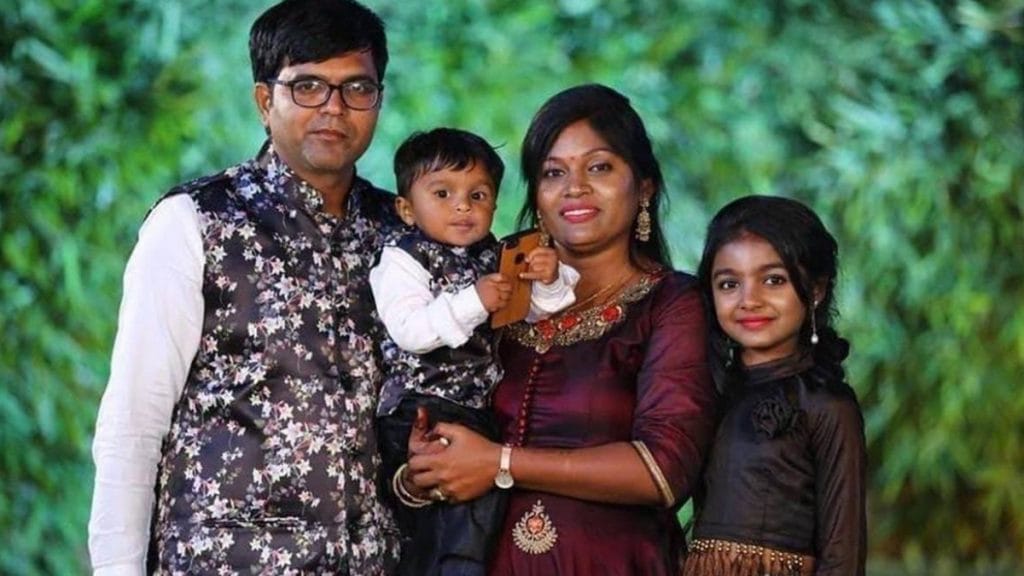
For those who make it into the US, the ordeal is not necessarily over. Illegal migrants are often apprehended by local authorities, presented in court, and only released on bond with a GPS tracker. Once free, they carry their release papers everywhere, knowing that being caught without them risks detention. Some move to other US states to start afresh but going home is off the cards despite the risks of living on American soil.
“There are no jobs here. People don’t have any other option,” Alpesh said. “In India, young men are able to earn Rs 15,000 a month, but in the states, they earn up to $3500 (close to Rs 3 lakh). That’s a lot of money to send back home. Young people are convinced that once they reach the states, after 2-3 years of struggle they can make a good life for themselves.”
India is my motherland and the USA is my breadland. No more immigrants are required in either of the countries
-NRI originally from Anand
Another way migrants stay in the US illegally is by overstaying on tourist visas.
“Even if they don’t overstay, people secure six-month visas, work there for a few months, and return home with a massive chunk of savings,” Alpesh added.
Some take even more drastic measures. There’s long been a trend of Patidar women crossing the border in the early months of pregnancy to deliver their babies in the US, ensuring citizenship by birth. These families rarely return to India, said multiple members of the Patidar community.
“There is a lot of demand for birth tourism. Thousands and thousands go to the United States just to give birth there every year. It is difficult to count the number of families who have gone this way,” said Praful Patel, proprietor of Go Cool, a visa immigration agency in Anand.
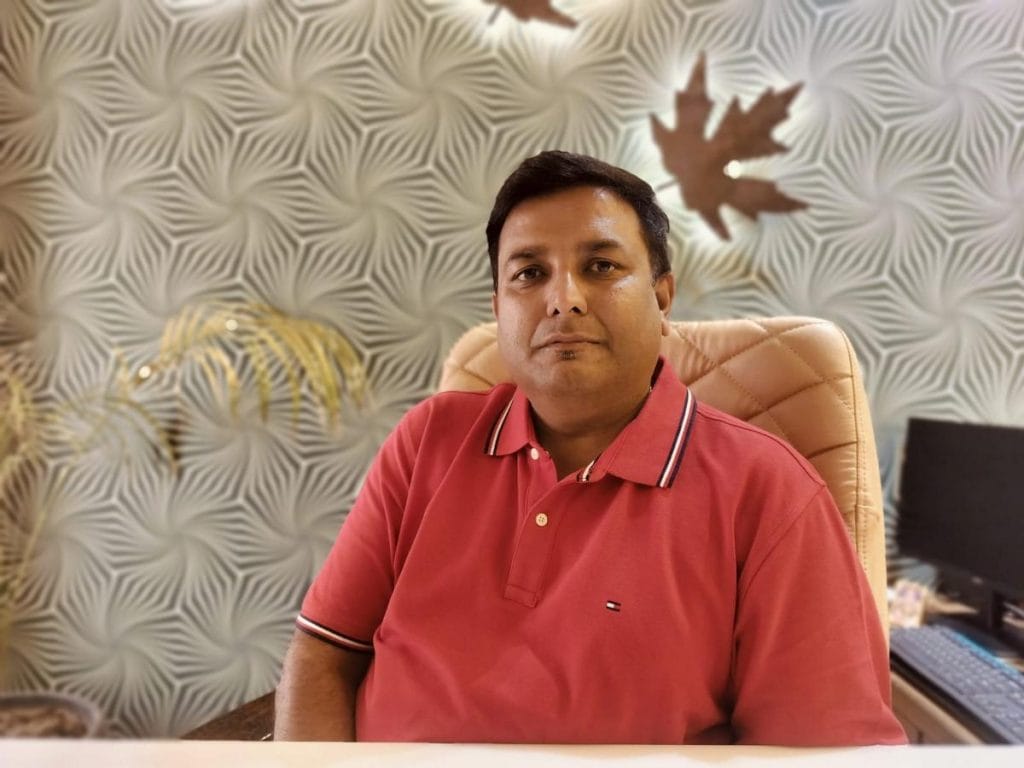
Legal routes, meanwhile, are becoming narrower.
The visa and IELTS agency industry—a vital pathway for students and workers seeking to settle abroad—has almost ground to a halt. First, Canada tightened its immigration policies under Justin Trudeau, and now Trump’s hardline stance has discouraged many from applying to the US.
“After COVID, business was booming as countries had made their immigration policies liberal. But now, as the gates shut, business has shrunk by at least 80 per cent. Many agencies have also dried up,” Praful Patel said.
Also Read: Milk & flowers for The Donald. Telangana fan’s Trump statue makes comeback as villagers ‘worship’ it
Team Trump still
Trump’s second presidency has sent ripples of anxiety through every level of the immigration chain, from ‘birth tourists’ and dunki arrivals to H1B visa holders.
Doctors have had to caution Indian couples against preterm deliveries, as many scramble to hospitals to ensure their child is born before Trump’s 20 February deadline to end birthright citizenship.
Still, some H1B visa holders are holding on to hope.
“Companies will fight for us. Elon Musk will fight for us,” said 39-year-old Jamik Patel, who has been living in the US for eight years. His WhatsApp groups are buzzing with videos and resources about the 14th Amendment, which guarantees citizenship by birth or naturalisation in the US.
Yet even as many Gujaratis find themselves at the sharp end of Trump’s policies, the Patidar community at large is still staunchly supportive of him.
“No more immigration should happen. We all went to the USA via the legal route, and are hardworking, tax-paying citizens now. Why should we pay for the well-being of these immigrants?” said Nilesh Patel, a non-resident Indian visiting his village in Anand.
A lot of Patidar NRIs even draw parallels between Mexicans in America and Bangladeshis in India.
“We don’t like Bangladeshis, and want to get rid of them, right? Then what is wrong if the United States wants the same?” said an New Jersey-based liquor store owner in Anand, speaking on condition of anonymity.
For many, Trump and Modi are two sides of the same coin.
“Trump is a nationalist. And we support Trump in the USA like we support Modi in India,” said another NRI in Anand. “India is my motherland and the USA is my breadland. No more immigrants are required in either of the countries.”
(Edited by Asavari Singh)



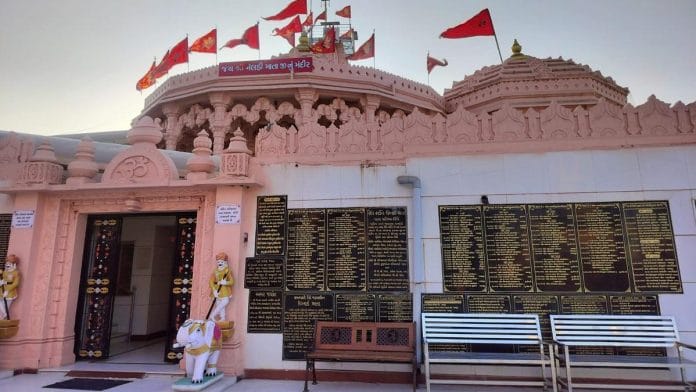



Meldi Mata, for that matter any other God, would never help those indulging in illegal activities. No God and no religion ever helps people engaging in illegal activities and breaking the law.
Gujarat is a prosperous state with lots of opportunities. One fails to understand why Gujaratis are so desperate to migrate to western nations. By engaging in such illegal immigration, these Gujaratis are bringing shame and dishonour to India as well as Gujarat.